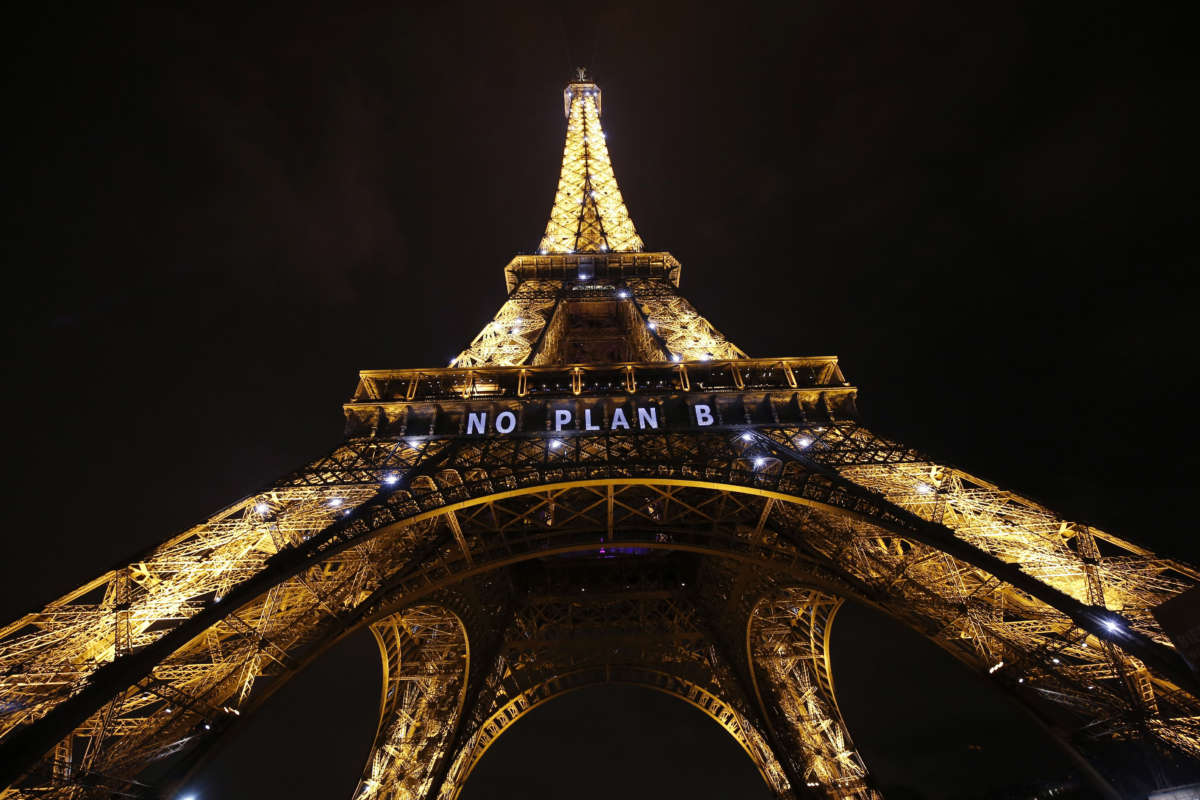Support justice-driven, accurate and transparent news — make a quick donation to Truthout today!
On the day after a consequential presidential election, the U.S. has officially pulled out of the Paris climate agreement. Despite being the world’s second-largest emitter of carbon dioxide, the U.S. is now the only country in the world that has left the accord.
Negotiated in 2015, the primary aim of the Paris agreement is to keep global warming under 2 degrees Celsius. Each country has emissions reductions goals, and richer countries pledged $100 billion a year to help poorer countries do things like invest in clean energy and adapt to climate impacts such as sea-level rise.
Climate denier President Donald Trump has made a big show of pulling out of the agreement, promising throughout his presidential run in 2016 that he would withdraw the U.S. from the accord or try to “renegotiate” it. And he promised to pull out again in 2017, when he falsely equated environmental regulations with killing jobs. Finally, last year, his administration officially filed notice that the U.S. would be backing out of the accord, and it was made official on Wednesday.
Get our free emails
While the U.S. pulling out of the agreement is more symbolic than anything, it still has political implications.
If Trump wins the election, the U.S. will stay this course. For the next four years, the country will sit back while the rest of the world comes to agreements on the degrees to which each country is responsible for emissions reductions and the mechanisms with which the world will keep global warming at “safe” levels. The U.S. will not be bound by these agreements and will not have a say in how they are negotiated.
The withdrawal, along with the many facets of climate change denial that have marked the Trump presidency, raises potential diplomacy issues as other countries come to distrust the U.S.’s flip-flopping on its global promises.
On the other hand, Joe Biden has promised to re-enter the Paris agreement on “day one,” though if that comes to pass, the U.S. will have to play catch-up for the years lost due to Trump sending bad actors to the yearly global climate talks. And, crucially, the U.S. will have to establish itself as competitive again, as other countries like China have only stepped up their emissions promises in recent years.
The agreement is often viewed as a boon to the climate movement in the U.S. However, what’s more important is how Biden, should he win the presidency, will carry out his climate promises regardless of the U.S.’s participation in the accord, since many climate advocates argue that the accord doesn’t do enough. Two degrees of warming is still enough to do catastrophic damage; and as Earther’s Brian Kahn has pointed out, “there is no safe global warming.” Since the accord is nonbinding — meaning that there is no means for compelling countries to meet their targets — the agreement itself has very little teeth, apart from peer pressure.
If elected, Biden will have his work cut out for him, as the American public and the world will look to his administration to take a leading role in what will be extremely crucial years for the climate. Biden has come a long way on climate since he became the Democratic presidential nominee and rejoining Paris will be square zero.
Speaking against the authoritarian crackdown
In the midst of a nationwide attack on civil liberties, Truthout urgently needs your help.
Journalism is a critical tool in the fight against Trump and his extremist agenda. The right wing knows this — that’s why they’ve taken over many legacy media publications.
But we won’t let truth be replaced by propaganda. As the Trump administration works to silence dissent, please support nonprofit independent journalism. Truthout is almost entirely funded by individual giving, so a one-time or monthly donation goes a long way. Click below to sustain our work.
